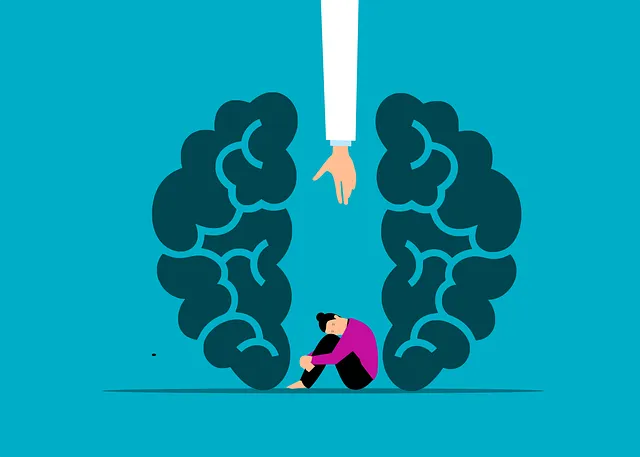The Longmont Kaiser Permanente mental health center offers 24/7 crisis hotlines and comprehensive care, addressing diverse mental health needs through trained professionals. With cultural sensitivity and tailored interventions, the center provides immediate support, suicide prevention, and guidance to Colorado residents. Flexible visiting hours and innovative digital services ensure accessibility, fostering emotional resilience and community connections while destigmatizing mental health discussions.
Mental health crisis hotline support services are a vital resource for individuals facing emotional distress. This article delves into this critical safety net, focusing on Longmont Kaiser Permanente Mental Health Center and its role in providing aid. We explore the importance of these hotlines, how and when to access them, and the crucial contributions of trained professionals. Additionally, we discuss innovative virtual and community-based initiatives expanding their reach. For those seeking support, understanding these services and resources is key, especially during visiting hours at Longmont Kaiser Permanente mental health center.
- Understanding Mental Health Crisis Hotlines: A Vital Resource
- Longmont Kaiser Permanente Mental Health Center: An Overview
- When and How to Access the Crisis Hotline
- The Role of Trained Professionals in Support Services
- Expanding Reach: Virtual and Community-Based Initiatives
Understanding Mental Health Crisis Hotlines: A Vital Resource

Mental Health Crisis Hotlines are a vital resource for individuals facing acute emotional distress or mental health crises. These dedicated services provide immediate support, offering a safe space to express concerns and receive guidance. Trained professionals on these hotlines offer a range of assistance, from crisis intervention and suicide prevention to connecting callers with appropriate local resources, such as the Longmont Kaiser Permanente mental health center visiting hours.
Cultural sensitivity in mental healthcare practice plays a crucial role in ensuring these services cater to diverse populations effectively. Emotional regulation and emotional intelligence are key components of this, enabling professionals to understand and respond to the unique needs and experiences of each caller. By offering non-judgmental support and tailored interventions, crisis hotline services can make a significant impact on improving emotional well-being and fostering resilience in those facing mental health challenges.
Longmont Kaiser Permanente Mental Health Center: An Overview

The Longmont Kaiser Permanente Mental Health Center stands as a beacon of hope and support for individuals navigating mental health challenges in the heart of Colorado. This comprehensive care facility offers a wide array of services designed to cater to diverse psychological needs, ensuring that every patient receives tailored treatment. With a focus on holistic well-being, the center integrates various therapeutic approaches, including trauma support services, to foster emotional intelligence and resilience among its clients.
Visitors can expect a warm and supportive environment during their stay or consultation. The Longmont Kaiser Permanente mental health center visiting hours typically accommodate flexible scheduling, ensuring accessibility for those seeking immediate assistance or ongoing therapy. This commitment to availability underscores the facility’s mission to make quality mental healthcare accessible to all, fostering a sense of community outreach that transcends traditional boundaries.
When and How to Access the Crisis Hotline

In times of mental health crisis, immediate support is crucial. The Longmont Kaiser Permanente mental health center offers a dedicated hotline for those in need, available 24/7. This service is designed to provide swift assistance and guidance, ensuring individuals receive the necessary care promptly. Calling the hotline puts you in touch with trained professionals who can offer valuable resources, crisis intervention, and emotional support tailored to your situation.
Accessing this critical resource is straightforward. Individuals can reach out at any time via phone, where they will be connected to a qualified listener ready to assist. The process is confidential, allowing people to share their concerns freely. Whether facing anxiety, depression, or other mental health challenges, the hotline offers a safe space for expression. Additionally, understanding cultural competency within healthcare, promoted through training programs and public awareness campaigns, ensures diverse communities feel welcomed and supported when utilizing these services.
The Role of Trained Professionals in Support Services

Trained professionals play a pivotal role in mental health crisis hotline support services, ensuring individuals in distress receive expert and compassionate care. These professionals are equipped with specialized knowledge and skills to handle a range of mental health issues, from depression and anxiety to suicidal ideation and psychotic disorders. They undergo rigorous training in risk assessment, crisis intervention techniques, and effective communication strategies, enabling them to provide immediate support while guiding users towards long-term solutions.
The Longmont Kaiser Permanente mental health center, for instance, offers visiting hours that cater to the community’s needs, with staff members organized through a robust Community Outreach Program Implementation. This program facilitates regular sessions on stress management and mental well-being, complementing their hotline services. Through such initiatives and Risk Assessment for Mental Health Professionals, they actively foster a supportive environment, empowering individuals to take control of their mental health and encouraging proactive engagement in care.
Expanding Reach: Virtual and Community-Based Initiatives

In today’s digital age, mental health crisis hotline support services are evolving to reach a broader audience through innovative virtual initiatives. Longmont Kaiser Permanente mental health center visiting hours have expanded beyond traditional in-person visits, incorporating online platforms and mobile applications that offer accessible resources for those seeking help. These virtual programs not only cater to individuals with limited mobility or those in remote areas but also provide a convenient and often more comfortable space for vulnerable users to connect with professionals. By leveraging technology, these services aim to destigmatize mental health discussions and encourage more people to seek support when needed.
Community-based initiatives complement virtual efforts by fostering a sense of belonging and accessibility within local neighborhoods. Programs that focus on Inner Strength Development and Confidence Boosting through group sessions, workshops, and peer support groups have proven effective in empowering individuals to navigate their mental health journeys. Such community engagement not only strengthens social connections but also empowers folks to embrace Mind Over Matter Principles, leading to improved well-being and resilience.
Mental health crisis hotline support services play a pivotal role in providing immediate assistance and long-term solutions. As highlighted, resources like the Longmont Kaiser Permanente Mental Health Center offer crucial care, with dedicated professionals available during visiting hours to guide individuals through crises. By combining traditional services with virtual and community-based initiatives, these hotlines are revolutionizing access to mental health support, ensuring folks receive the help they need, when they need it most.






